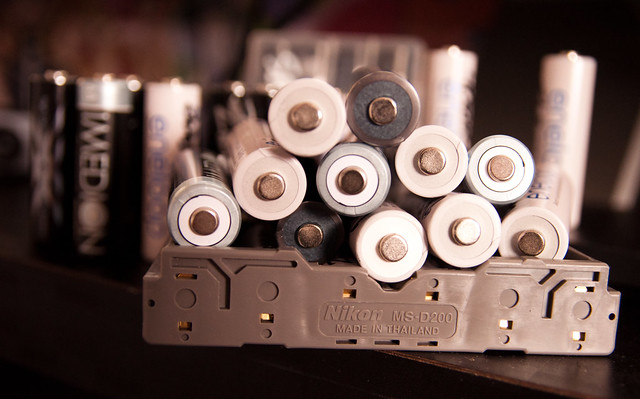How Long Does the Lithium Battery Last?
Nov 07, 2019 Pageview:1108
Batteries with lithium as an anode are known as lithium batteries. There’s no secret that these batteries have revolutionized the portable devices market, for instance, smartphones, laptops. All thanks go to its high energy density and decreasing costs makes it perfect to be used even in electric vehicles. Moreover, the lithium-ion batteries are becoming more and more popular for EV and solar market. In short, lithium batteries are found in a wide range of consumer applications.
Are you going to buying a rechargeable or non-rechargeable lithium battery for your application? If so, then it’s good to know “how long does the lithium battery last” before you make any purchase. In fact, it’s always a smart thing to be aware of the battery you’re using in your application. Whatever questions you have related to the lithium-based battery life are going to be answered in this post.
So, let’s begin…
The lifespan of a Lithium Battery
There are a number of factors that remarkably affect a lifespan of a battery pack on the shelf. What was the status of the pack’s charge when stored? Is battery stored in colder or hotter temperatures? Who does the job of internal electronics? And so on…
One thing is for sure that if a pack of the battery drops below a specific charge capacity, then the pack will stop charging at all and as a result, it will meet its usable life end. How much time the battery is going to take to reach this particular stage depends on the manufacturing process and elements along with factors, mentioned above. Considering all these things, if you take proper care of your battery, you can surely expect your battery to last between 3 and 6 years on a shelf.
If you’re wondering how many charge cycles you can expect from your lithium battery, then it again depends on several factors. This includes battery capacity and configuration, definitely and ambient storage temperatures, too. In fact, your behavior towards the battery counts when it comes to charging cycles your battery can experience before it becomes worthless.
Therefore, in regards to charging cycles, how long do lithium-based batteries last? Most manufacturers claim that battery users can expect over 1,000 charge cycles. One charging cycle means discharging it and then, charging it again.
When comparing the lithium-ion battery with other batteries such as NiCad in terms of how long do it they last, the former ones have a better life cycle. The first reason is that lithium-based batteries experience a few environment impacts as compared to other batteries. Moreover, they have low self-discharge in storage. All these features ultimately help in extending the life cycle of the battery.
Lithium-based batteries continue to enhance and it’s pretty possible or you can expect that they could last for many next years to come.
Can a Dead Lithium Battery be Recharged?
Considering the “Dead” battery pack, it is crucial to note the cells that contain the battery pack aren’t dead. The management system of the battery disconnects the cells from the terminals of the pack when the cells drop below a certain voltage. In this scenario, the management system of the battery prevents the cells from further discharge. However, it does let them take a charge.
Therefore, a dead battery pack may be recharged or jump-started and all you need to do is to apply a charging voltage until the cells recuperate an appropriate voltage, enabling the management system of the battery to make a connection again for discharge.
But, many lithium-ion battery systems available are made from big prismatic cells that are connected to a battery external management system. In such scenarios, the cells were enabled to be discharged to risky low voltages. If a cell is excessively discharged, then the copper metal surface on the anode starts to melt into the electrolyte. Upon recharging, the copper metal starts to reform, but this action could cause a short internally and lead to an extremely dangerous situation.
Considering all these things, dead lithium-based batteries, especially rechargeable ones should be recharged, instead, go for recycling.
How Do You Prolong the Lithium Battery Life?
Lithium-based batteries are gaining huge popularity over other battery technologies thanks to their remarkably low maintenance, high stability, and low self-discharge rate. Even though the lithium-based batteries come with several advantages, it yet has its downsides. That’s why it is important to know how to take care of and extend the life of your battery.
· Prefer Optimal Storage Temperature - not too cold or not too hot
Lithium-based batteries should be placed at cooler temperatures as heat is one of the biggest factors leading to any battery damage. In fact, try to store your battery at a temperature that isn’t too hot or too cold. Indoor temperatures are considered to be ideal throughout the year for batteries and there is generally less humidity too.
· Moisture
Water and lithium are two things that shouldn’t mix. If they do, then it results in the formation of lithium hydroxide & hydrogen which is very flammable. The battery can catch fire and the situation can become worse if you pour water on it. The best thing to do is to store all lithium batteries away from water sources.
· Manage the discharge
Recharge the batteries before they are fully dead. Not allowing it to die fully will prolong the lifespan of the battery. If you’re planning to store your lithium batteries for a long period, ensure to do at half charge.
· Voltage
Many batteries end quite fast as they were charged with the wrong voltage. One of the prime advantages of using a lithium-based battery is that they provide rapid recharging and therefore, you don’t have to mess with the procedure. Generally, for a 12-V lithium battery, the suitable charging voltage is 14.6 V.
Managing the storage temperatures, keeping them dry and making sure you’re charging properly will help you prolong the life of your lithium battery for sure.
- Prev Article: How Efficient Are Lithium-ion Batteries?
- Next Article: Lithium-Ion Battery Power Station
Leave Message
Hottest Categories
-
Hottest Industry News
-
Latest Industry News











